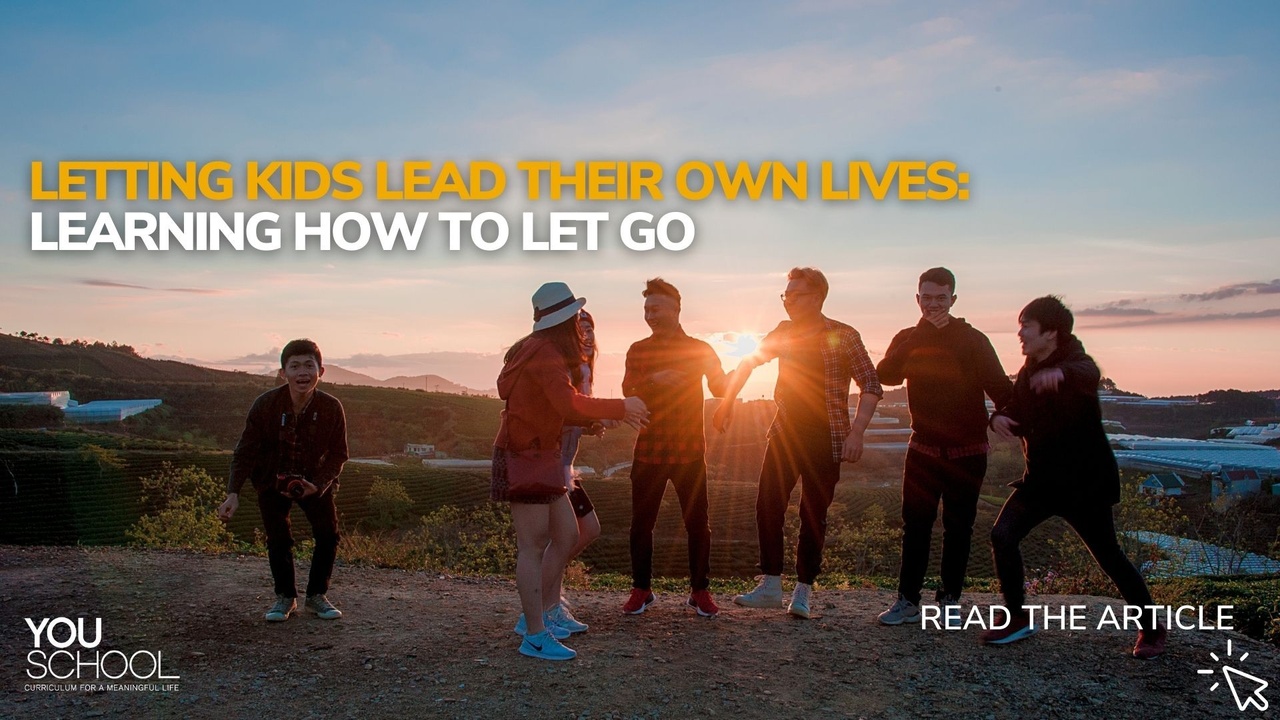Letting Kids Live Their Own Lives

THE PATH OF SURRENDER
As my kids get older, I'm realizing in a new way how little control I have over them. It's the same lesson I remember trying to learn when they were toddlers. Remember trying to get them to be bathed, brushed, and clothed so they could get to preschool on time?
Letting go of control seems to be a prerequisite for doing this well, whether we're parents, teachers, coaches, or adults in a kid's life. The stark reality is we can't control much even if we tried. We can't protect them from getting their hearts broken. We can't demand they care about our values. We can't force our beliefs on them (although generations before have tried). We can't predetermine how they'll handle conflict with their friends, or if they'll ever learn to really apologize. We can't make them want to save money for a rainy day or act generously even when they're feeling strapped. We certainly can't tell them what to do for a living or require they become curious and lifelong learners.
We can't control much, actually.
That's the main reason why being a part of a kid's life is so challenging. It would be a lot simpler if we could directly influence who they become and how they interact with the world, but we can't. It's all indirect, tangential, and adjacent work.
When they blow it, it doesn't just hurt them but it hurts us, too. When one of my kids brazenly broke a rule a few months ago, it wasn't just their punishment but it was also our mess to clean up (notably when I had to call another kid's parents and apologize). When they aren't doing well in school, it's not just extra work they'll have to do to catch up, but it's my own disappointment and discouragement, and anxiety about their future that I have to deal with. When they just can't seem to put together the skills they need to excel in a sport, it's not just them who feel embarrassed with their teammates, but I'm also wrestling with my own frustration with the genes I passed on.
So, how do we navigate through this? How do we do both- be there for them as well as attend to our own feelings and experiences?
Once again, it's an invitation to do the inner work. There have been moments and seasons where I've neglected or forgotten to do the inner work of paying attention to my own feelings and experiences, and what happens is I inadvertently put more pressure on my kids. I get more intense with them, more demanding, quicker to disappointment and frustration, and I make it worse for them. I forget that there's a gap between their life and mine. (Fancy term: enmeshment or co-dependency).
Doing the inner work means I take time and pay attention to myself in relation to them. For me, it means I take some slow deep breaths and ask myself a few questions:
- In what ways have I forgotten that they're on their own journey?
- In what ways am I putting my extremely high (and unrealistic for their age) expectations on them?
- What would I do differently if I was just a neutral, caring adult in their life?
- What do they need from me that's different than what I'm giving to them?
- What other options do I have to healthily handle my own anxiety, disappointment, or fear?
Kids need support and encouragement. They need to go out into the world on their own to experience what real life is all about, and a safe place to come back to so they can reflect and lick their wounds. They need adults cheering for them and promising ongoing commitment, rather than threats of disappointment, shame, or rejection. They need us to let them live their own lives, and not live ours through them.
It's difficult, long, uncomfortable work. But that's what we do, for the sake of kids.
Scott Schimmel
President & Chief Guide
Do you know what you're going to do when you get older?
Actually, forget what you're going to do. Figure out who you want to be.
Go through our When You Get Older free mini-course.
